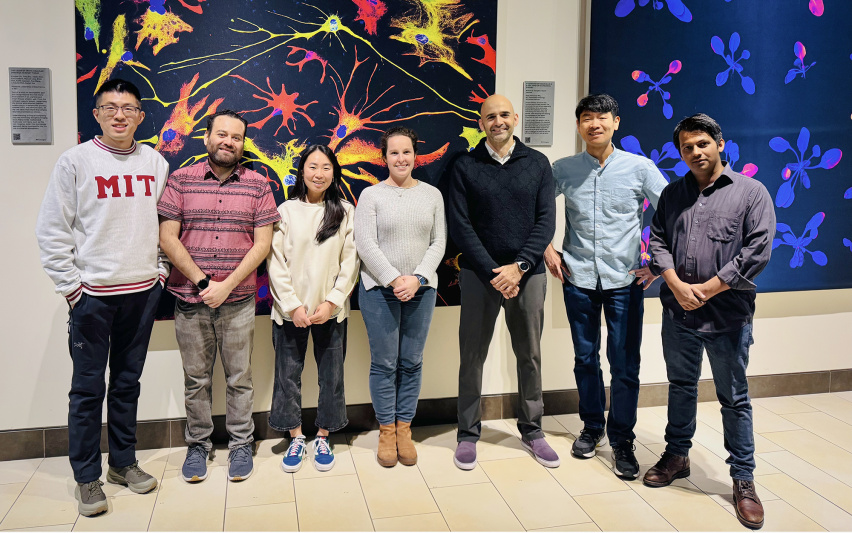
MIT Koch Institute
November 20, 2024
The Koch Institute for Integrative Cancer Research at MIT is pleased to announce the 2024-2025 class of Convergence Scholars. Founded in 2017, the Convergence Scholars Program (CSP) is designed to enhance the career development of aspiring independent scientists with diverse interests across academia, industry, science communication, and STEM outreach.
To achieve this mission, CSP organizes thematic workshops, one-on-one mentoring, networking opportunities, and interactive group social hours. Scholars are also encouraged to develop new research collaborations with other class members, particularly at the intersection of biology and engineering, and refine their “brand” of science and its impact on society.
By tailoring individual goals with training opportunities and connections through MIT, the CSP ultimately seeks to prepare postdocs for a critically important yet often overlooked component of a scientist – life beyond the bench. Since its inception, the program has supported 75 postdoctoral researchers in furthering their career development.
As part of their award package, CSP scholars will receive a supplemental stipend for use towards their career development. Stipends are provided by philanthropic support, including a generous gift from Michael and Lisa Ullmann. The Koch Institute and CSP leadership are grateful to our broader community for their support in bolstering postdoctoral resources and investing in future scientific leaders.
Please join us in congratulating the Class of 2025 Convergence Scholars:
Amy Lee
Langer/Jaklenec Lab, Biological Engineering & Women’s Health
Amy designs biomedical devices to deliver pro- and prebiotics to promote a healthy vaginal microbiota, thereby preventing or treating cervical cancer. She seeks to advance engineering approaches to address gynecological problems.
Jose Ortiz
Yilmaz Lab, Biology
Jose studies the effects of obesogenic diets across murine life stages, including links between parent and offspring, in the development of early onset colorectal cancer. He seeks to advance scientific outreach and education through his artistic background.
Meaghan McGeary
Jacks Lab, Biology
Meaghan develops lineage-tracing technology to genetically track tumor evolution and drug resistance mechanisms in models of pancreatic cancer. She seeks to enrich her understanding of evolutionary biology and collaborate with immunologists and translational labs to identify novel cancer therapies.
Ranjan Mishra
Weinberg Lab, Cancer Immunotherapy & Antibody Engineering
Ranjan investigates the role of immunosuppressive proteins and develops antibodies to enhance immunotherapy efficacy in ovarian cancer. He plans to expand upon his skillset in optogenetics and imaging technology, as well as to pursue entrepreneurial opportunities.
Yuang Chen
Anderson Lab, Biological Engineering
Yuang designs immune cell therapies and implantable drug delivery devices to treat cancers such as glioblastoma. He seeks to strengthen his grant-writing skills, establish seminars and workshops to foster collaborations, and integrate principles from materials science and computational biology for synthesizing novel cancer therapeutics.
Zhengpeng (Jason) Wan
Kamm Lab, Biological Engineering & Immunology
Zhengpeng builds vascularized tumor models to study how cancer cells interact with their environment, including biophysical stimuli, cell migration, and response to anti-tumor immune cells. He seeks to expand his role as a mentor, elevate his grant-writing proficiency, and apply his microvasculature platforms to answer questions across cancer biology, such as in liver cancer.